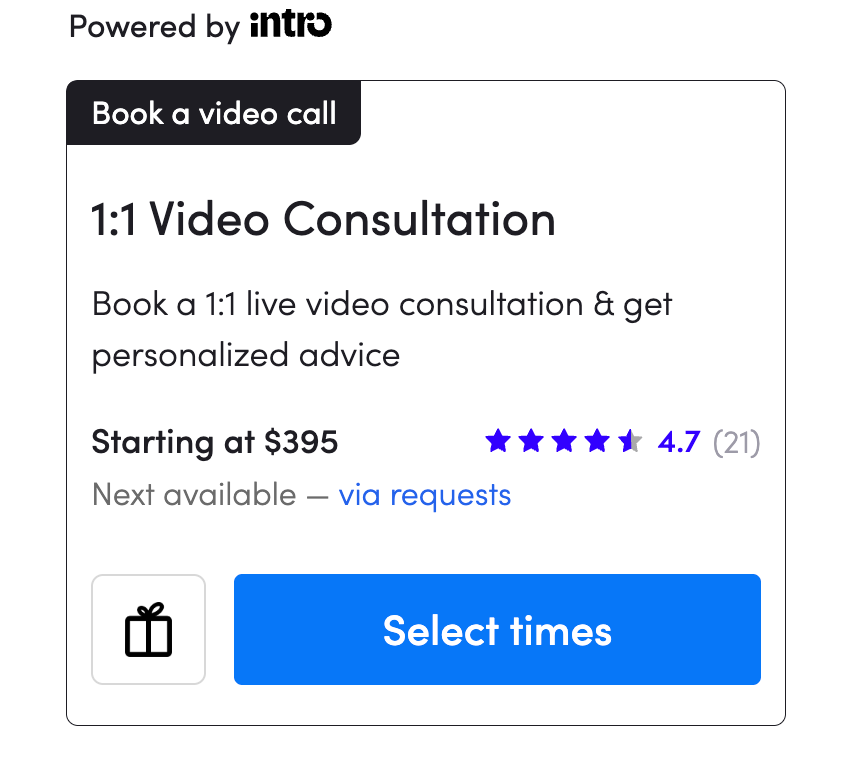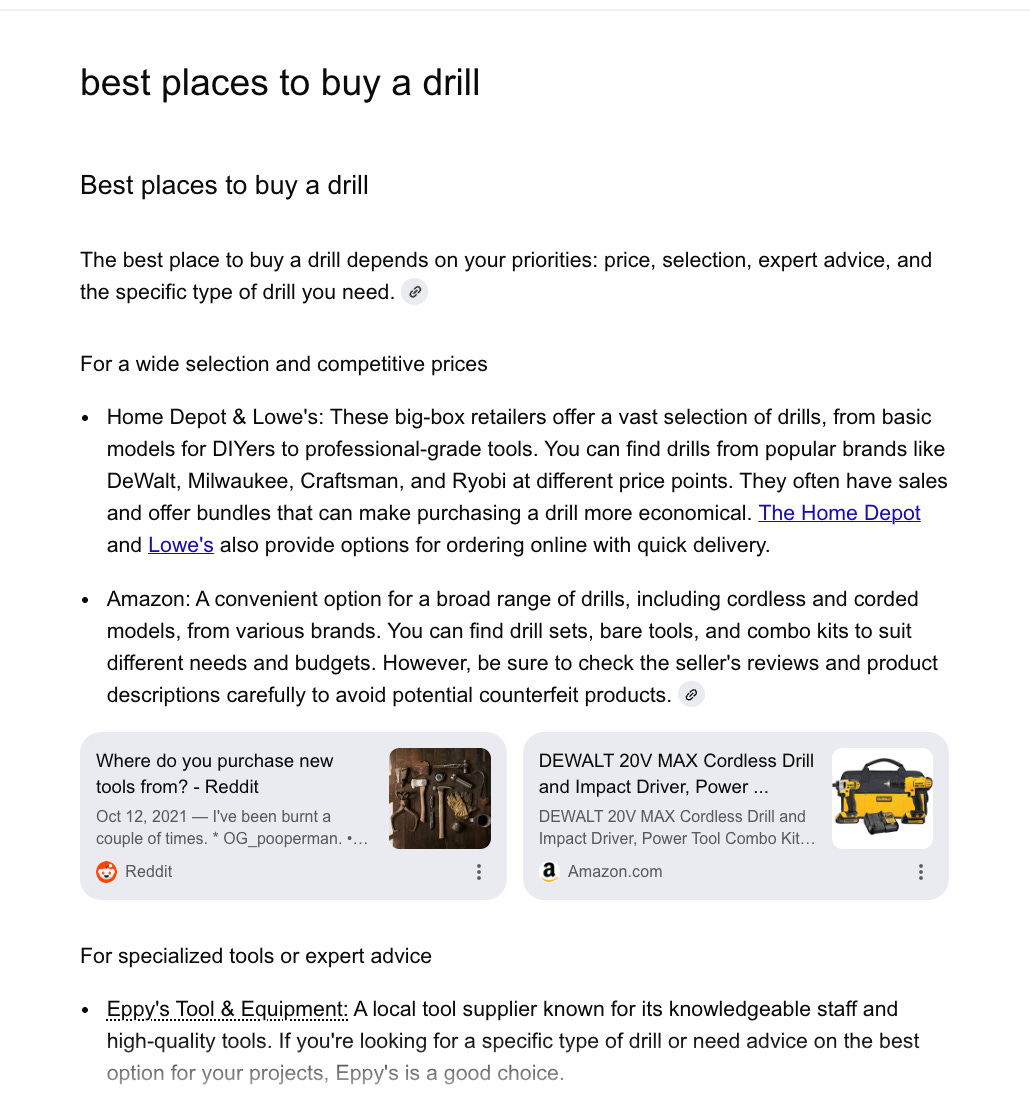First you need an SEO strategy, not a GEO tool
Believing that AI is going to kill SEO is a fundamental misunderstanding of SEO
This week’s newsletter is sponsored by the North Star Inbound.
I am often asked why SEO will remain relevant in a world dominated by AI Overviews, chatbots, and, eventually, AI agents that handle our searching and browsing.
Are you struggling with how to pivot your SEO strategy to account for all of the changes happening so fast? Book me on Intro, and we can walk through a strategy.
Many in the investor, media, and even marketing worlds believe that AI has transformed SEO into oblivion, and they could not be more wrong. They are prematurely hyping new tools that create massive FOMO by executive leadership, and this will make the losses in today’s SEO traffic pale in comparison to what is coming.
They assume that SEO is only to be focused on as it relates to AI, and there’s no need for any traditional SEO.
This perspective misunderstands the core purpose of SEO and the evolving nature of how users discover information online. Far from killing SEO, AI systems and agents are poised to reinforce its importance, provided we promote the understanding of what SEO truly is.
SEO is here to stay, although the practices and tactics will inevitably change.
SEO is not and should never have been about gaming algorithms or spamming Google with keywords. It’s about ensuring users can find the information, products, or services they seek. It’s about creating content that answers questions, solves problems, and meets user intent. As AI processes and tools become more integrated into our digital lives, this user-centric approach to SEO will become more critical than ever.
The misconception that SEO is solely about ranking on Google has led to the belief that AI-driven responses will make it irrelevant. After all, if users can ask an AI tool a question and get an immediate answer, why would they need to click through to a website? While it’s true that AI responses can provide quick answers to simple queries, they don’t eliminate the need for deeper, more comprehensive content that requires a click.
If the goal is to show up in AI responses, it merely redirects old SEO spam efforts, which focused on ranking, into new efforts that aim for visibility in AI responses.
This belief is what drives many people to purchase tools solely for AI ranking. Having a tool that shows your ranking on AI prompts does not help you drive customers. AI visibility is visibility alone and is more akin to brand marketing than SEO. Showing up in an AI response is not even half the battle.
Search is not just informational
Not all searches are transactional or informational. Many navigational users are looking for a specific brand, product, or service, and the search engine or AI response is the means to find that outcome. In these cases, AI engines will still direct users to websites, and SEO will play a crucial role in ensuring that your site is the one they find IN THE AI RESPONSE.
This is the most critical area where SEO needs to change from its current paradigm. SEO isn’t just about optimizing for Google or, for some, Bing; it is about optimizing for the user who goes online to fetch information in whatever medium they choose. SEO is needed to ensure that a website (or app) follows the best practices and tactics to achieve the desired visibility in that medium.
In this context, technical SEO is not about manipulating rankings but about making your site more accessible and understandable to humans and machines. By focusing on quality and structure, you’re optimizing for search engines and the future of AI-driven discovery.
SEO is evolving
When I first started learning SEO, keyword stuffing and link exchanges were the way to drive more traffic. Those tactics fell away and were replaced by other tactics like link buying and long-tail keyword optimization, but ultimately, I discovered that this was all a race to the bottom. This led me to develop the concept of Product-Led SEO and write my book.
The rise of AI response systems is just the latest chapter in this ongoing evolution of search, but it is not a comprehensive revolution if your SEO is already focused on the user and the intent behind their searches.
Rather than killing SEO, AI is pushing it to become more sophisticated and user-focused. The days of spamming Google with low-quality content are long gone, and those that double down on that strategy are failing. Today, great SEO requires a deep understanding of user intent and how to meet that intent. As AI becomes more integrated into search, these principles will only become more critical.
Humans are still required
One of the biggest misconceptions about AI is that it will replace human creativity and intuition. In reality, AI is a tool that enhances human capabilities, not a substitute for them. While AI can analyze data and generate content, it still relies on humans to create original ideas and products that resonate with buyers. AI can help streamline this process, but it can’t replace the creativity and empathy that drive truly effective SEO strategies.
The rise of AI response systems and intelligent agents is changing the practice of SEO, but it’s not the death knell for the industry. This is a glass-half-full moment. It’s an opportunity for user focus and creativity to emerge, rather than SEO efforts that rely solely on having an enormous war chest to buy content and links.
AI is only a UI change, and if you didn’t focus on your users before, AI responses will only make this worse. Build an SEO strategy around your users, not the engine. Don’t fear the impact of AI on SEO, embrace it as a catalyst for innovation and growth.
Brought to you by North Star Inbound—the sales enablement SEO agency.
Drive High Intent Leads with SEO.
What happens when you combine best-in-class SEO with conversion optimization?
BigRentz's traffic increased by 186% (85k), added 1950 conversions in 12 months.
Self Financial's traffic increased by 50k/month, and added 685 new customers.
Lastly, Secure Data added 1968 phone calls.
North Star Inbound’s SEO strategies earn leads, conversions, and revenue..
Book a call for a free content audit and 10% off any engagement.





